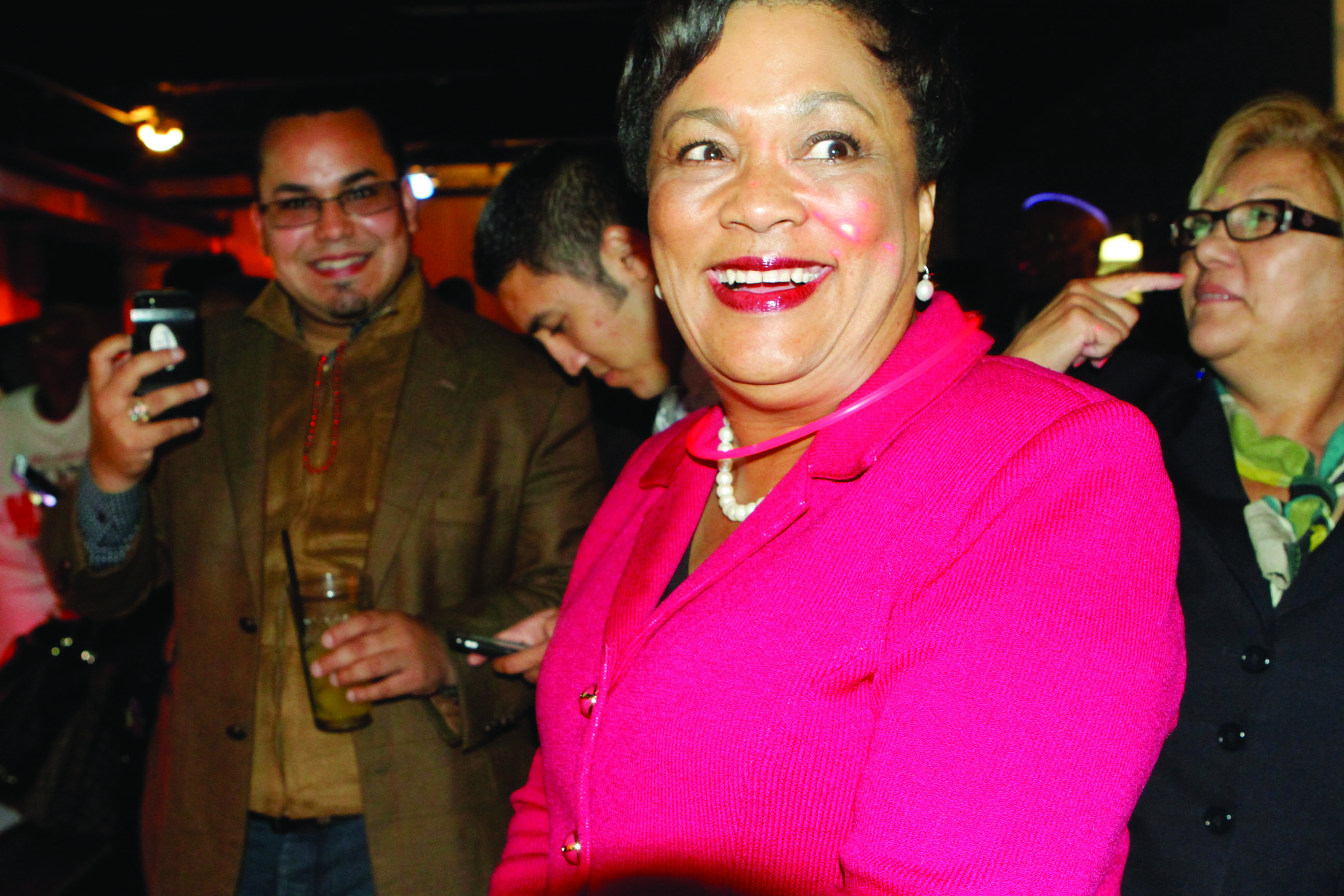
Mayor Toni Harp secured her second term in the Elm City in a landslide victory Tuesday night.
With 10,784 votes counted, Harp received majority support from all 30 of New Haven’s wards. The two runners-up, independent candidates Ron Smith and Sundiata Keitazulu, received 1,070 and 269 votes, respectively. Harp’s significant majority — she defeated Keitazulu and Smith by an eight-to-one margin — far outstrips the less than 6 percentage points by which she beat Justin Elicker FES ’10 SOM ’10 in 2013.
At an after-party in the Long Wharf club Keys to the City on Tuesday night, Harp declared to supporters — including newly elected Beaver Hills Alder Jill Marks and Board of Education member Edward Joyner — that New Haven is a city “on the rise,” as well as the cultural and educational center of Connecticut.
“New Haven took a risk on me — on my leadership, on my skills, on my vision,” Harp said in reference to her first may oral win in 2013. “Today we are seeing that gamble pay off.”
Harp, the city’s first female mayor, was a state senator for over two decades before tackling issues of youth violence and the city’s budget during her first term as mayor. In her victory speech, Harp cited safer streets, improving schools and a rise in jobs, along with the proliferation of new housing and small businesses cropping up through the city as major achievements of her first term.
Harp added that in her second term, she plans to focus on programs centered on education, the elderly as well as jobs for city residents.
In contrast to the 2013 election, Harp did not encounter a challenger in the primary this year. Two years ago, Harp defeated three competitors in the primary — Elicker, Kermit Carolina and Henry Fernandez LAW ’94 — before pulling in 11,353 votes to Elicker’s 9,416 in the general election.
Harp’s campaign manager Rick Melita declared the mayor’s win yesterday “an easy victory” before the vote count had been completed.
Voter turnout Tuesday paled in comparison to 2013 — while approximately 30 percent of registered voters cast ballots two years ago, the average voter turnout for this year was under 19 percent.
Westville Alder Adam Marchand, whose seat was uncontested, anticipated that the Board of Education contest would draw otherwise disinterested voters to polls as well. Marchand cited Ward 25 — in which 30 percent of voters turned out this year — as a ward with historically high turnout rates. Although a majority of the ward voted for Elicker in 2013, Harp dominated the votes by 84 percent this year.
Though turnout varied from ward to ward — with only six wards holding contested aldermanic elections — voters interviewed skewed in favor of Harp, citing her successful first term in office and her Democratic affiliation.
At 7 a.m. Tuesday morning, Harp arrived at Ward 25 polling place Edgewood Magnet School in Westville to cast her own vote. Harp told reporters there that public safety, jobs and education were the top issues on which she expected voters to cast ballots.
Harp’s defeated opponents — Keitazulu, a Newhallville plumber, and Smith, a former city clerk — concurred with her on these issues, but suggested that Harp had done little to resolve issues such as crime in the city or to engage with her constituency.
At Ward 20 polling place Lincoln-Bassett School in Newhallville Tuesday morning, Keitazulu acknowledged that he was an underdog in the race.
In an interview with the News after the election, Keitazulu said that the factors which contributed to his loss include limited campaign funds, minimal media coverage and inadequate voter outreach.
Harp faced Keitazulu and Smith in two debates this election season, focusing on issues of the economy and education in the city.
Harp is the 50th mayor of New Haven.
Cameron Hill and Sara Seymour contributed reporting.
Interested in getting more news about New Haven? Join our newsletter!







